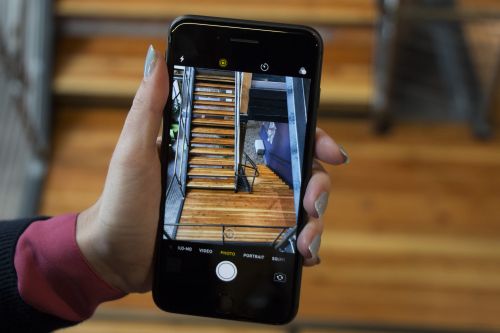Top Ten Reviews Verdict
On the surface, the iPhone 8 Plus isn't much different from the iPhone 7 Plus, but its new A11 Bionic processor makes it the best performing smartphone on the market.
Pros
- +
The phone’s new six-core processor outperformed all others by a significant margin in benchmark tests.
Cons
- -
It doesn’t have a standard audio jack.
Why you can trust Top Ten Reviews
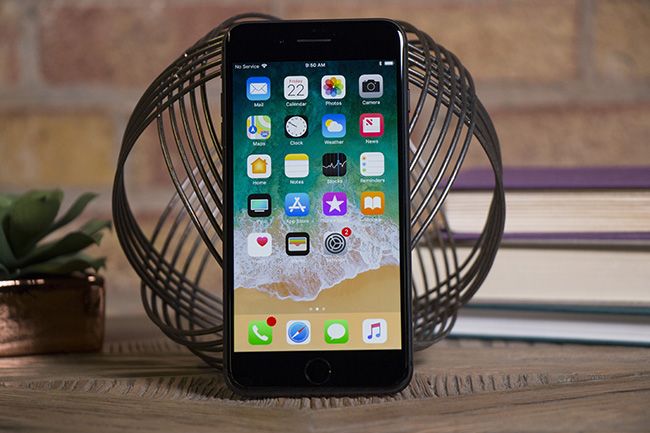
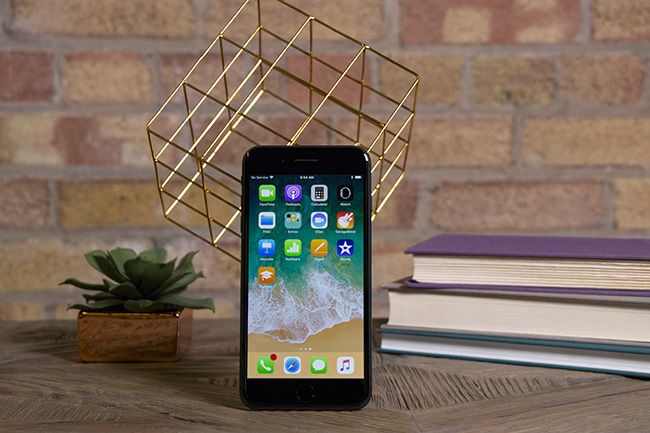
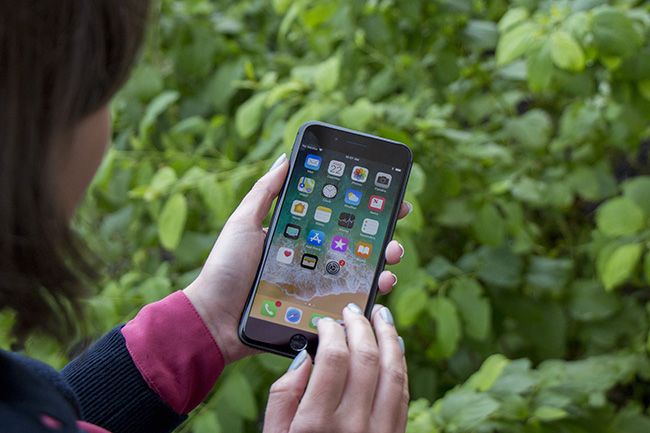
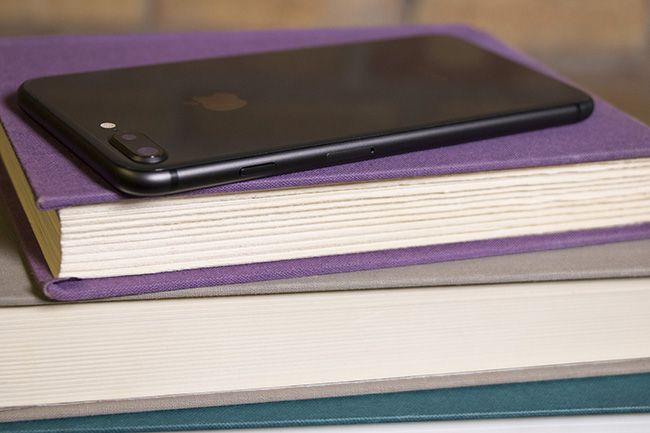
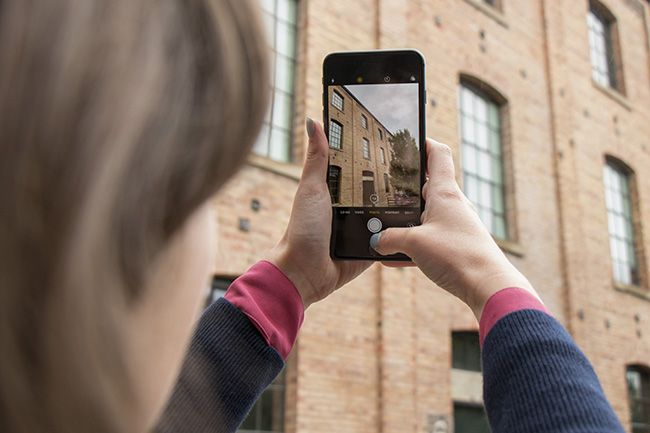
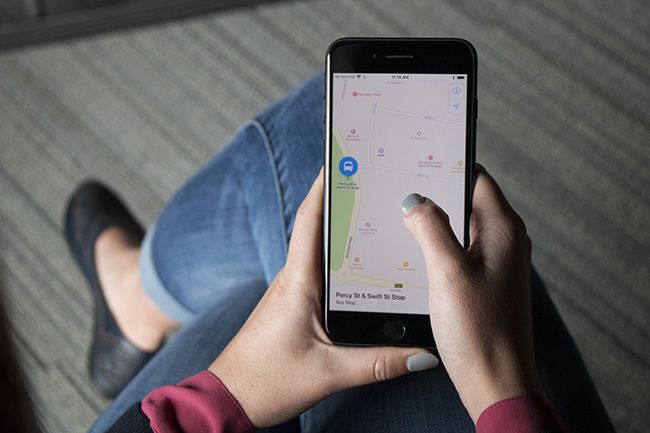
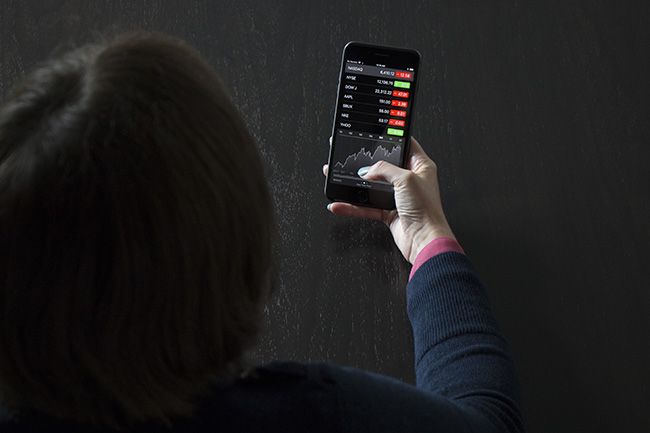
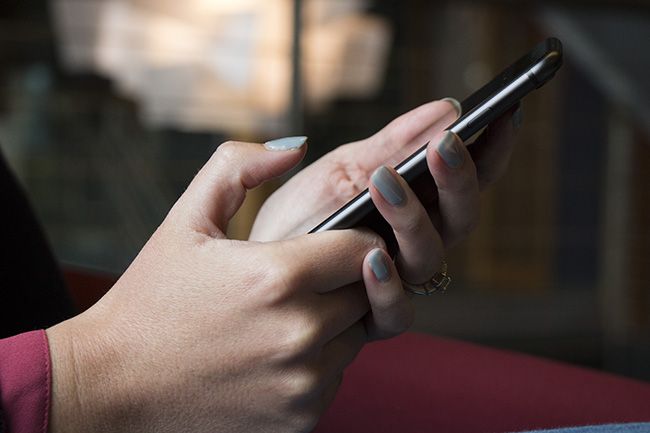

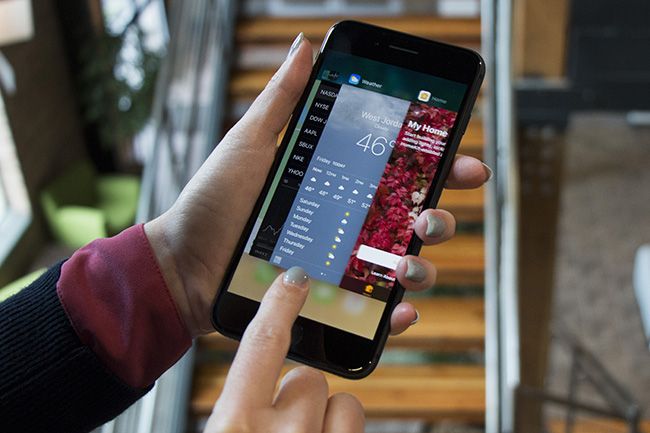
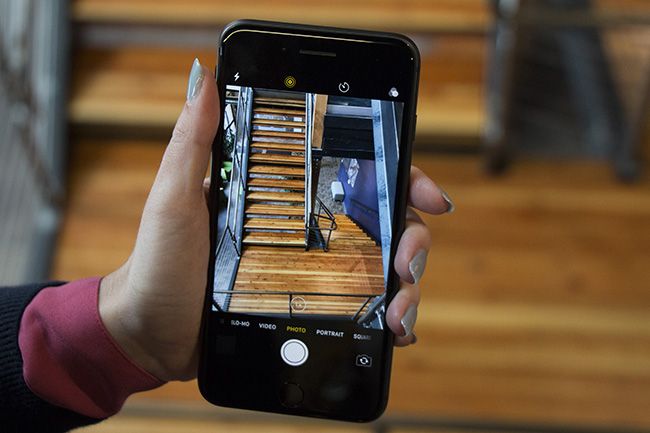
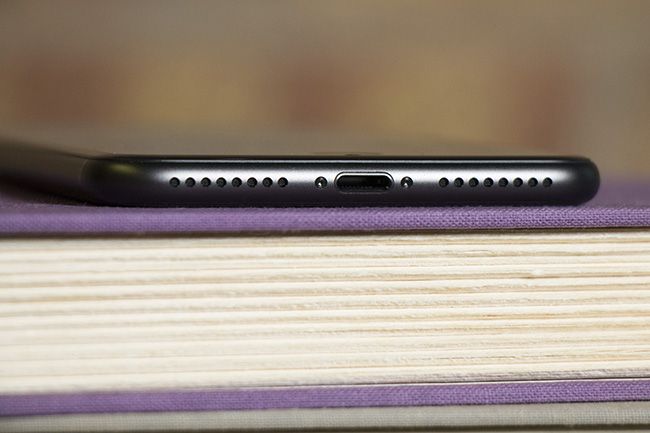
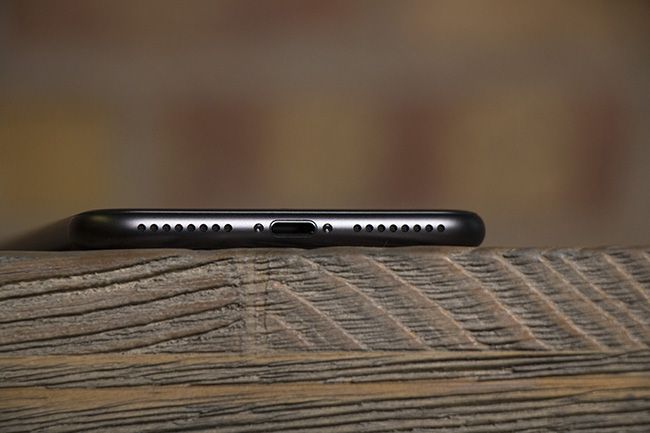


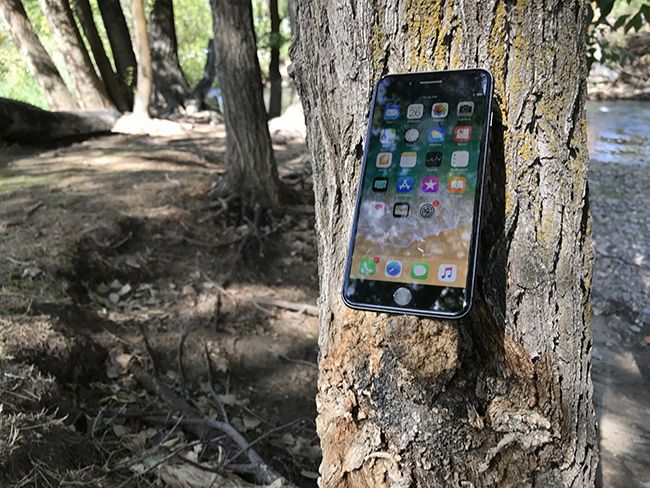
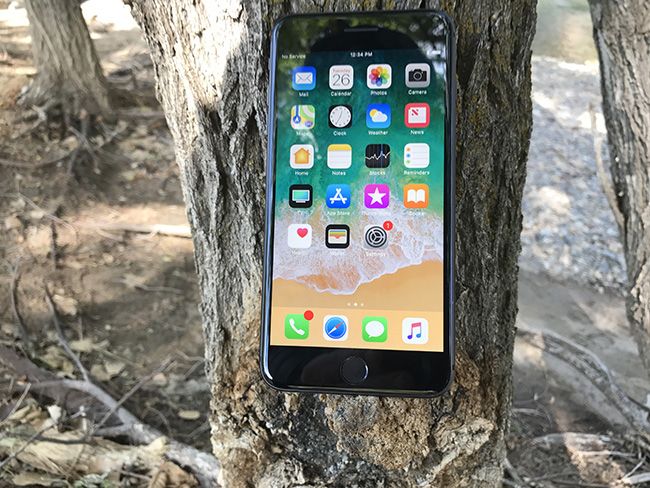
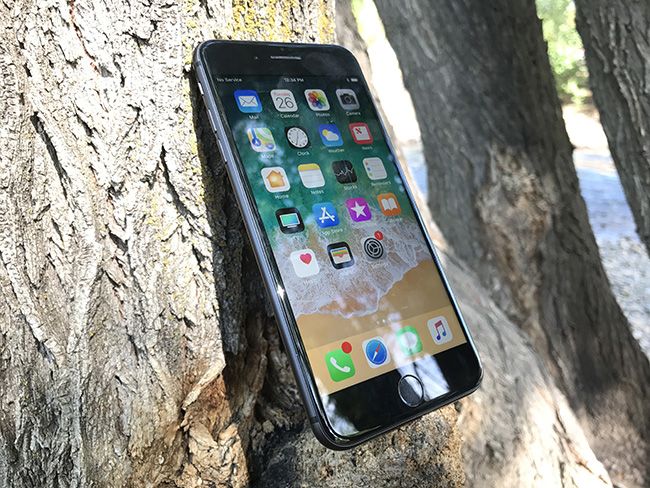
Editor’s Note: This product has been removed from our side-by-side comparison because it has been discontinued. You can still read our original review below, but Top Ten Reviews is no longer updating this product’s information.
Despite the new all-glass design, the iPhone 8 Plus doesn't look much different from the smartphone’s previous iteration. Although slightly larger and heavier than the iPhone 7 Plus, this version looks and feels nearly identical in your hand and pocket. It features the same 5.5-inch LED display, and the operating system is largely the same. However, the new A11 Bionic chip processor is a game changer for smartphones. With six cores and an energy-efficient design, the iPhone 8 Plus’s performance in our benchmark tests is only matched by the iPhone 8 and the iPhone X, which also feature the A11 processor. And perhaps even more important – it's blazing fast without draining the battery.
The most significant change in the iPhone 8 Plus’s design is the all-glass casing. This was received with skepticism by many users because previous iPhones have notoriously brittle glass screens. However, Apple claims this glass is the most durable on the market and was added to the iPhone to allow for easy wireless charging, which is the other major new feature. Our sister site, Tom's Guide, performed drop tests and found the glass to be more durable than expected. When dropped onto wood at heights exceeding 6 feet, the glass was unscathed. The only damage it sustained, a minor crack, came from dropping it onto concrete from about 4 feet.
Like the iPhone 7, the iPhone 8 Plus doesn't have a 3.5mm audio jack. Apple framed its omission as a way to remove old technology so that the phone could be slimmer. However, it has been a sticking point for many users, especially audiophiles who prefer the audio quality of a wired connection, which also doesn't drain the battery as fast as a wireless signal. This is the main reason we gave the iPhone an A usability grade and not an A+.
The iPhone 8 Plus has a 12MP camera with a larger and faster sensor than the 7's. While the camera received an A+ for image quality, we didn't find it to be much different from that of the iPhone 7. The biggest difference is the new portrait mode, which is only available with the iPhone 8 Plus. This mode provides excellent lighting options for better portraits; however, it can't be used for selfies.
It also has a 10x zoom for photos and 6x zoom for videos, which is impressive. This makes the camera versatile and allows you to really get up close without losing image quality.
The most impressive part of the iPhone 8 Plus is its new A11 Bionic processor. While the phone only has 3GB of RAM, which is the same as the 7 Plus, the new processor makes big waves with six cores made up of four efficiency cores and two high-performance cores – the result is a smartphone that sets the new high mark for performance in all areas. And perhaps even more important, the performance boost doesn't cause drastic decreases in battery performance.
Sign up to receive the latest news, reviews, buying guides and deals direct to your inbox
In our benchmark tests, this processor was significantly faster than the next-best one on the market. For example, in the 3DMark Ice Storm test, which measures tablet and smartphone graphics performance, the Samsung Galaxy S8 scored a 36,415 and the iPhone 7 Plus scored a 36,711 – both scores represented the fastest smartphones on the market. However, the iPhone 8 Plus scored a 61,443.
In the 3DMark Sling Shot test, which is used to compare mainstream Android and iPhone processors, the iPhone 8 Plus scored a 4,283. For comparison, the Samsung Galaxy 8, which held the highest score previously, scored a 3,510.
Another test that displays the A11 Bionic chip's dominance is the AnTuTu benchmark, which is another performance measuring app. In this test, the A11 earned a 227,618 – 50,725 points higher than the previous iPhones and 61,146 points higher than the Samsung Galaxy S8.
If a slow smartphone is the bane of your existence, then the iPhone 8 Plus is well worth the high price tag.
Our partners at Tom's Guide performed battery benchmark tests with the iPhone 8 Plus, and it ran for 11 hours and 16 minutes. Only three smartphones had batteries that last longer in the same test. This is impressive when you consider the A11 Bionic processor’s high performance.
The battery has two major improvements over past iterations: wireless charging and rapid charging. With the all-glass casing, the 8 Plus can charge on the Apple charging mat, which means you don't have to plug it in or deal with the power cord falling apart with wear. In addition, its rapid charging means it can reach a 50-percent charge in 30 minutes, which is great news if you're constantly running for an outlet.
The biggest feature update is the move from Bluetooth 4.2 to 5.0, which was expected. Bluetooth 5.0 is the new standard and features a longer range and faster data transfer speed, which translates to better audio quality and performance. There is far less interference with 5.0, which means your Bluetooth headphones sound better.
This iPhone is water-resistant, a feature introduced with the iPhone 7. It has an IP67 rating, which means you can submerge it for up to 30 minutes in a meter of water. That said, Apple doesn't include liquid damage in the warranty. So if you drop it in the kitchen sink and it stops working, Apple likely won’t replace it. In other words, despite the water-resistance, you still need to be careful with it around water, especially as it ages, as even Apple explains that the water-resistance degrades with age.
Despite its all-glass design, the iPhone 8 Plus doesn't look or feel very different from its predecessor, the iPhone 7 Plus. Its camera quality is still the best on the market, though not noticeably better than the 7. However, its high-performing and energy-efficient A11 Bionic processor is very impressive and makes the iPhone 8 Plus the fastest performing smartphone on the market. If you're tired of a slow smartphone, then the iPhone 8 Plus is definitely worth the upgrade.
Contributing Reviewer: Jeph Preece
Rebecca has been writing about technology since 2015. She specializes in smartphones, phone plans, DNA tests and home networking equipment. She has a bachelors degree in creative writing and English literature from the University of Evansville. Rebecca currently works as the co-founder of All Times Are Local, a foster care organization.
